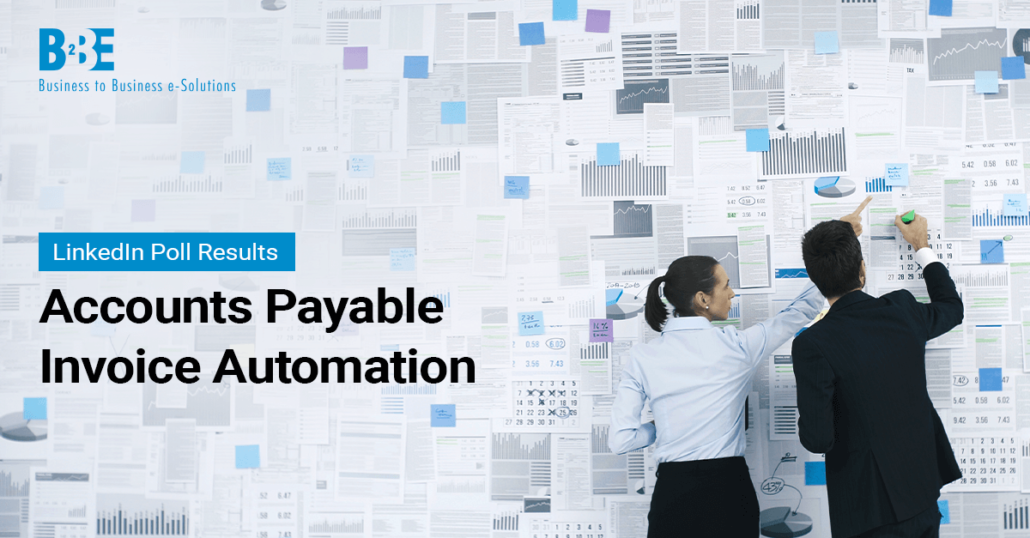In this article, we’ll explore our latest poll results to understand how many organisations are using invoice automation as part of their accounts payable process.
In the fast-paced world of modern business, organisations are constantly seeking ways to enhance operational efficiency and drive cost savings. One vital area that often presents challenges is the accounts payable process. As the backbone of financial operations, AP plays a crucial role in managing cash flow, vendor relationships, and financial health. However, traditional manual invoice processing can be labour-intensive, time-consuming, and prone to errors.
Recognising the need for a more streamlined approach, many businesses have now turned to invoice automation as a transformative solution. Organisations can reap a number of benefits by leveraging technology to digitise and automate the accounts payable process. These include improved productivity, a reduction in manual errors, and enhanced data accuracy. As well as unlocking valuable insights for strategic decision-making.
Poll results
In our most recent LinkedIn poll, we asked our social media followers if invoice automation is part of their accounts payable process?
Invoice Automation: What we found
Yes – 75%
A staggering 75% of respondents affirmed that invoice automation is indeed a part of their accounts payable process. This overwhelming majority clearly highlights the growing trend and acceptance of automation within the financial landscape.
The popularity of invoice automation can be attributed to several key factors. Invoice automation enables organisations to streamline their processing workflows, reducing manual effort and time spent on administrative tasks. By automating the capture, validation, and routing of invoices, businesses can accelerate the entire accounts payable cycle. All of which results in faster payment processing and improved cash flow management.
By embracing invoice automation, businesses can not only streamline their accounts payable operations but also position themselves at the forefront of financial technology. The transformative potential of automation ensures organisations are better equipped to navigate the demands of a rapidly evolving business landscape. As a result, this fosters growth, and maintains a competitive edge.
Not yet, but working on it – 13%
While the majority of respondents have already integrated invoice automation into their accounts payable workflow, a notable 13% mentioned that they are currently working on implementing it. This group recognises the potential benefits of automation and acknowledges the need to streamline their accounts payable process for improved efficiency.
Implementing invoice automation is a complex undertaking that requires careful planning, system integration, and change management. The organisations in this 13% are actively investing time and resources to adopt automation, understanding that it will bring significant improvements to their accounts payable operations.
No – 13%
13% of respondents answered “no” when asked if invoice automation is part of their accounts payable process. One possible explanation for this 13% is that some organisations may not be fully aware of the benefits and potential of invoice automation. They might not have explored the technology or its impact on streamlining their accounts payable processes. The concept may be relatively new to them. Or they may lack exposure to success stories and case studies highlighting the advantages of implementing such a solution.
Change, especially in established processes, can often be met with resistance. Some organisations may be hesitant to adopt new processes or technologies due to concerns about disruption, employee training, or perceived risks. Resistance to change within the organisation can hinder the adoption of invoice automation. This is because stakeholders may prefer to stick with familiar manual processes, despite the potential benefits it can bring.
The poll results highlight that while a significant majority of organisations have embraced invoice automation as part of their accounts payable process, a minority of 13% have not yet adopted this transformative technology. Limited awareness, resource constraints, and resistance to change may be contributing factors to their decision.
More information
B2BE’s experience in the supply chain sector allows our customers to build, expand and adapt successfully, enabling greater effectiveness. To engage with B2BE and offer feedback on what matters most to you and your business, make sure to follow us on LinkedIn and across social media. You can also vote in our latest LinkedIn poll. If you’d like to discuss your supply chain strategy, get in touch with us.
